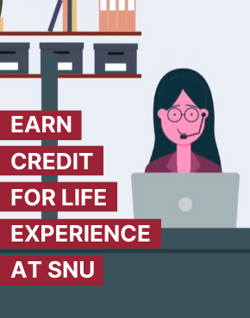-
Programs
Not Sure Where to Start?
- Associate Programs & Certificates
- General Studies
- Associate of Arts in Business
- Physical Therapist Assistant
- Professional Services & Certificates
- Special Education Bootcamp
- View All
- Undergraduate Programs
- Business Administration
- Criminal Justice
- Cybersecurity
- Education
- Family Studies and Gerontology
- Healthcare Administration
- Organizational Leadership
- Accelerated General Education
- View All
- Graduate & Doctorate Programs
- Doctorate of Education in Administration & Leadership
- M.A. Administration of Special Ed.
- M.A. Applied Psychology
- M.A. Educational Leadership
- M.A. Sports Management & Administration
- M.A. Teaching
- MBA, 12- 18 months
- MBA - Healthcare Administration
- Master of Organizational Leadership
- M.S. Counseling Psychology
- M.S. Exercise Science - Health & Human Performance
- M.S. Exercise Science - Wellness
- M.S. Instructional Design Technology
- M.S. Management
- M.S. Physician Assistant
- Alternative Certification (Teaching or Special Ed.)
- View All
- Resources
- Tuition & Aid
- Military
Associate of Science in Information Systems & Technology
Prepare to collaborate and interact with colleagues globally across cultures to ensure the organization operates effectively in any environment.

Program Overview
SNU's Associate of Science in Information Systems and Technology prepares learners for entry-level positions in a wide variety of organizations and environments. The curriculum provides the fundamental knowledge and skills necessary to develop, implement, support, and maintain industry-standard information systems and technology platforms essential for any size of organization. The course of study prepares learners to collaborate and interact with colleagues globally across cultures to ensure the organization operates effectively in any environment.
Information Systems and Technology stands at the core of any business or organization and provides the infrastructure and mechanisms to enable firms of all sizes around the globe to operate and strive to meet their mission and vision. Throughout this program, learners gain the necessary competencies, knowledge, and confidence to expand their educational goals to the bachelor’s level and beyond, while striving for technical and professional employment opportunities.
SNU's associate program is made up of 10 general education courses and 10 Information Systems and Technology courses. By attending class entirely online, you can earn your associate degree in as few as 24 months with books and materials delivered right to your door.
How it Works
Earning a degree while working full time or raising a family has never been more possible. Here’s why adult students are thriving and reaching their goals at SNU:
- Classes take place entirely online.
- Students focus on one class at a time to ensure true mastery and prevent overwhelm.
- Students study alongside other adults in similar stages of life.
- Instructors with vast amounts of industry experience guide students through courses.
- Textbooks are delivered directly to your door at the beginning of each class.
- A dedicated student success advisor guides students through the duration of your studies.

Courses
This degree prepares students for more than the practical duties of their future career—it prepares them to enter the field as an insightful, well-rounded individual ready to make a difference. For an in depth understanding of learning outcomes, review the courses and descriptions below.
Credit hours: 3
This course provides an introduction to the practice of Systems Design Lifecycle (SDLC) and the Security Development Lifecycle (SDL) Threat modeling. Students examine the standard methods of system design, analysis, development, and modeling from a global perspective. Learners practice how to implement secure design practices at the organizational level. (This is the first course and a prerequisite for all other courses.)
Credit hours: 3
This course introduces industry-standard hardware and operating systems found globally, including desktop computers and mobile devices. Students learn how computer hardware, software, and networks interact to provide computing power, data processing, and communications. The basic characteristics of the most popular operating systems are covered (Windows, macOS, and Linux for desktops, iOS, and Android for mobile devices).
Credit hours: 3
This course offers an introduction to the architecture and tools used to manage, monitor, and troubleshoot Microsoft Windows operating systems, applications, and related hardware. Students learn the methodologies to proactively identify, troubleshoot and mitigate Microsoft Windows operating system common breaks and malfunctions. Students gain knowledge of standard maintenance procedures and practices.
Credit hours: 3
This course provides an introduction to the Unix/Linux family of operating systems. Students gain practice performing general system operations, manage services, and practical applications in a real-world business setting with global operations. At the end of the course, students will have the ability to complete basic operations and general tasks associated with an entry-level administrator.
Credit hours: 3
This course highlights industry-standards network technologies, devices, and protocols fundamental for all domestic and international organizations. Students review and utilize routing and switching protocols required to ensure the secure transfer of data and communications. Learners gain knowledge of networking operating systems and platforms.
Credit Hours: 3
This course provides an introduction to the core security requirements for organizations of every size and industry. The primary emphasis includes understanding the key principles driving security-related decisions at each level of operations within an organization. Understanding the basic concepts aids learners in establishing a solid foundation in security protocols and standards.
Credit hours: 3
This course introduces the fundamental concepts of programming languages and elementary principles of software development. The primary emphasis focuses on comprehending the most common types of programming languages, data types and handling, structures, modular constructs, and object-oriented programming.
Credit hours: 3
This course provides an introduction to database design and administration. Students learn how to structure data for the most common database types, models, and terminology. This course illustrates database design, collection requirements, relational database components, normalization, and security protocols. Standard Query Language (SQL) will be introduced. The course provides students with the essential skills to install, configure and administer a database with a database management system (DBMS).
Credit hours: 3
This course introduces cloud concepts, models, and principles. The security and ethical implications of moving to a cloud model of IT infrastructure are covered. Students review the leading Cloud vendor’s products and services and compare them to NIST standards and regulations. The course prepares students to make informed decisions and recommendations for an organization preparing to safely move to cloud operations.
Credit hours: 3
This course provides an introduction to information technology project management. The standard project management categories of planning, scope, scheduling, cost, procurement, quality control, risk, communication, and stakeholder management are included. The course utilizes concepts and tasks specific to information technology projects from a global perspective. The career path of an IT project manager is described along with the certification process. (last course in the program)
General Education Courses
Credit hours: 3
A General Education course that develops writing skills through expressive and explanatory writing, often in the context of the student's own experiences.
Credit hours: 3
General Education course that continues to develop writing skills in more formal and academic contexts through practice in rhetoric, argumentation, and research.
Credit hours: 3
A beginning course which stresses that communication is an essential element of human existence. Basic communication theory, interpersonal skills, and public speaking skills are addressed.
Credit hours: 3
This is an introductory course providing computer experience in a wide variety of application software. Its purpose is to help the student increase confidence on a computer while facilitating a broad range of possibilities which may be used throughout their college and professional life. Applications include word processing, electronic spreadsheets, presentation software and desktop publishing.
Credit hours: 3
A one semester course in which students are introduced to how a Christian perspective creates and deepens meaning in cultural, personal, social, and aesthetic issues; how to evaluate moral and ethical choices in light of sound interpretations of Christian scriptures, Christian traditions, and the Wesleyan theological perspective; and how Christians operationalize that analysis through active stewardship and service.
Select 1 of the following.
Old Testament Literature and Life
Old Testament Literature and Life is a General Education course. Its purpose is to identify the basic knowledge of the Bible - story line, main characters, books, great chapters, and teaching, and develop skills in understanding and communicating their meaning - that is expected will be known by all members of the SNU community of faith. This course is the product of the conviction of the SNU Faculty that a working knowledge of the Bible is essential for the fulfillment of the University mission to build responsible Christian persons. (3 Credit Hours)
New Testament Literature and Life
New Testament Literature and Life is a sophomore level, General Education course. Its purpose is to identify the basic knowledge of the Bible - story line, main characters, books, great chapters, and teaching, and develop skills in understanding and communicating their meaning - that is expected will be known by all members of the SNU community of faith. This course is the product of the conviction of the SNU Faculty that a working knowledge of the Bible is essential for the fulfillment of the University mission to build responsible Christian persons. (3 credit hours)
Introduction to Literature (3 credit hours)
A course designed to introduce students to the processes of critically reading written texts (fiction and nonfiction), visual texts (film and other forms of media), and oral texts (performance and oratory). It will provide a variety of tools with which to analyze and evaluate these materials within the context of ethnic, cultural, and personal identity. Focus will be on global literatures as well as literacies appropriate to their various histories, cultures, and themes. Prerequisite: Passing grades in Composition I&II (ENGL 1113/1213) or equivalent AP or CLEP credit (required)
Aesthetics (3 credit hours)
A one semester course in which students learn to evaluate artistic expressions, including the fine arts, music, drama, literature, media, and human movement (i.e., dance, sports), through the use of political, sociological, anthropological and aesthetic theories.
Introduction to Fine Arts (3 credit hours)
An exploration of the art, architecture, music, sculpture, and popular culture in various periods of the Western tradition. Emphasis will be given to cultural field experiences in the arts using the resources of the metropolitan Oklahoma City area. Prerequisite: Aesthetics (G S 1413) recommended.
American Cinema (3 credit hours)
This upper-division course provides an examination of the American film history and culture. This course is a survey of the American Film industry as an art form, an industry, and as a system or representation and communication.
Digital Photography (3 credit hours)
This course introduces digital photography as a medium and an integral part of today’s digital literacy. The course includes the study of photography as an art form, as well as, exploring hands on manipulation of camera controls and post processing using Adobe Lightroom Software.
History of American Popular Music (3 credit hours)
The course is designed to allow students to gain knowledge of the roots of popular music and an appreciation for musical concepts. The course seeks to chronicle the beginnings, evolution and styles of our popular American music culture through discussion, listening and research" our normal listening habits. It allows students to become acquainted with the important personalities and important movements of popular American music and to continue the process of becoming critical listeners to all types of music.
Exploring Leadership (3 credit hours)
This course examines the type of leadership that is required to create and maintain high levels of performance in organizations. Students will be encouraged to understand their personal leadership style and how to use that knowledge to build supportive and collaborative relationships with peers and to enhance the abilities of employees.
Introduction to Criminal Justice (3 credit hours)
An overview of the components of the U.S. criminal justice system - police, courts, corrections, probation and parole - with a general survey of current problems, trends and cross-cultural comparison.
Punishment in the United States (3 credit hours)
Punishment has always been a part of the fabric of American society. The purpose of this course is to study the nature, functions (and dysfunctions) and causes of punishment within the United States. We examine the interrelationships between penal control, corrections and other means of punishment and the role of race, poverty, the media, corporations and state agents in shaping all of them.
Select 1 of the following.
Educational Foundations of Teaching Practice (3 Credit Hours)
The course, Educational Foundations of Teaching Practice is a study of historical and current educational philosophy, theory and practice regarding the development of the teaching profession. In addition to the historical context, current aspects of teaching and the role of the teacher in effective classroom instruction and management will be explored and examined, with practical information that will assist those individuals who desire to pursue careers in classroom teaching. Lecture, problem-solving/case study, video review, and discussion formats will be utilized.
SPECIAL NOTE: This course will NOT qualify under Professional Education requirements for a traditional teacher education program.
Educational Psychology (3 credit hours)
This course is designed to introduce the teacher candidate to psychological principles and theories to demonstrate how this information can influence teaching decisions for maximum learning in the classroom. The course addresses the differentiated classroom through multiple developmental theories and instructional strategies related to diversity, and acknowledges ethnic, gender and special education needs. The course also provides information related to interpreting and understanding standardized tests for the purpose of improving the teaching-learning process and providing teacher candidates the opportunity to incorporate appropriate assessment strategies.
Social Problems (3 credit hours)
A systematic analysis of some of the significant social problems of our world today, emphasizing the contributions which social science can make toward the understanding of these problems.
Sociology of the Family (3 credit hours)
A study of the origin, development, functions, and problems of a basic social institution of our culture, the family. The effect of modern social and economic conditions on contemporary family life are reviewed.
Juvenile Delinquency (3 credit hours)
An overview of the US Juvenile Justice System with an emphasis on the history and development of philosophical approaches to juvenile delinquency. Examination of theoretical paradigms, current issues, and social problems.
Select 1 of the following.
Introduction to the Holocaust (3 credit hours)
This course seeks to engage learners in a critical consideration of the moral and religious and theological implications of Nazi German’s “war against the Jews,” the intentional and calculated destruction of some six million European Jews (accompanied by the enormous suffering and losses experienced by other “undesirable” groups) which is referred to as the Shoah, or Holocaust.
The Modern World, 1500-present (3 credit hours)
This course offers an overview of the development of human civilization from the Atlantic Revolutions to the present. It will analyze social, political, economic, moral, and ideological foundations important to the development of today’s global society.
Diversity in the Workplace (3 credit hours)
This course is designed to expand the student’s understanding of diversity within organizations, including cultures that are not derived principally from the European experience. A comparative perspective allows students to explore key racial/ethnic groups as well as protected classes of individuals. The goal of the course is to cultivate insight and respect for diversity by requiring students to explore a world quite different from their own.
Cultural Anthropology for the Ministry (3 credit hours)
This is a survey of the cultures of our world with a special look at non-western societies. The course will provide tools for more effective intercultural communications as well as giving us a mirror in which to see our own cultural groups more clearly.
Introduction to World Religions (3 credit hours)
Introduction to World Religions gives learners an introduction to some of the major world religions like Hinduism, Islam, Buddhism, Judaism, and Sikhism, and briefly covers the tenets of faith of Zoroastrianism and Jainism. This course surveys the basic beliefs and practices of these religions. It is designed to help the learner be aware of other religious traditions in our community and so be better informed of the religious melting pot around us.
Intercultural Communication (3 credit hours)
An introduction to the communication, which takes place when people of different cultures interact. This course surveys differences in cultures, which can create obstacles to understanding and communication and offers suggestions for dealing with these obstacles.
Upcoming Start Dates
Admissions
Enrolling at SNU is a simple process. With rolling start dates, there’s no need to wait months at a time to begin your educational journey. Plus, our generous transfer policy and prior learning assessment can shorten your path to graduation. Once you are ready, take the following steps:
Step 1. Apply online at degrees.snu.edu/apply
Step 2. Complete your FAFSA at fafsa.gov using school code 003149
Step 3. Send official transcripts from any colleges you have attended to SNU at pgsadmissions@snu.edu or ATTN: SNU PGS Admissions, Southern Nazarene University, 6729 NW 39th Expressway, Bethany, OK 73008.
You will be contacted regarding any supporting materials we may need. Upon acceptance, your student success advisor will help you enroll and prepare for success as an adult student at SNU.
Locations
Online
Online classes are specially
designed for professional &
graduate studies.
Phone: +1 (405) 491-6332
pgs@snu.edu
Program Resources
Getting started is easy
Request more information
Ready to apply? It takes 5 minutes!
Apply NowApplication Requirements
- Meet the admission requirements for your specific program
- Apply for an Undergraduate or Graduate Program
- Submit transcripts
- Be admitted, get advised, and enroll

Text With an Enrollment Counselor
Itching to become your organization's next leader? Text with an enrollment counselor to learn more about our Information Systems & Technology program.










%20(1).jpg?width=250&height=324&name=EB-SNU-WhattoExpectfromanOnlineDegreeProgram%20(1)%20(1).jpg)

